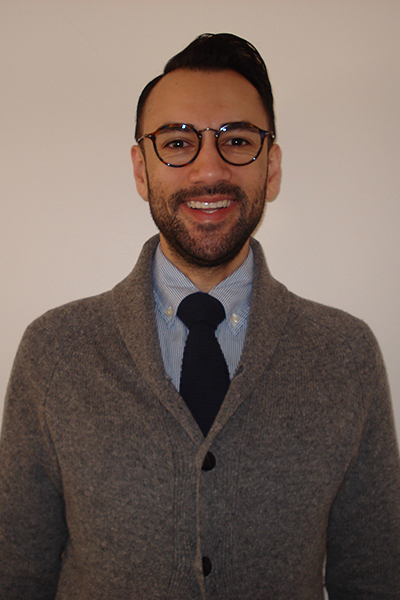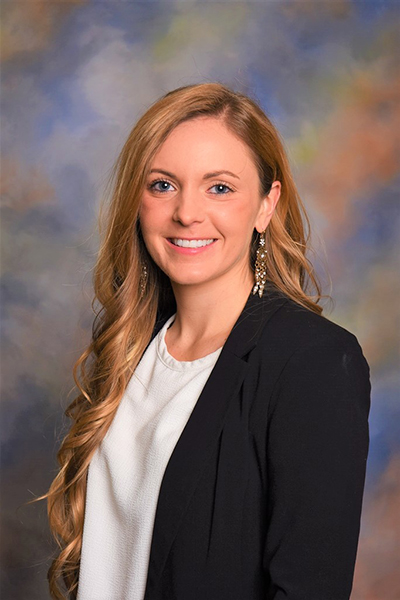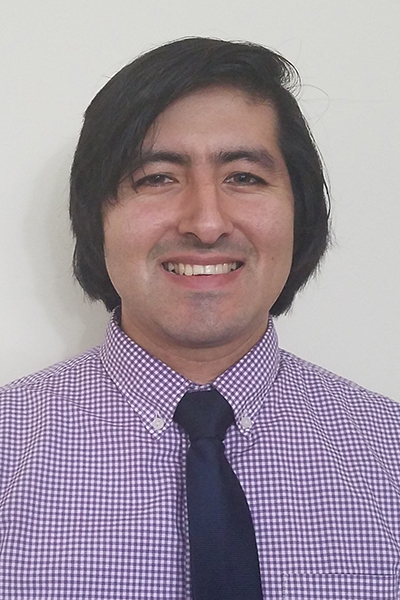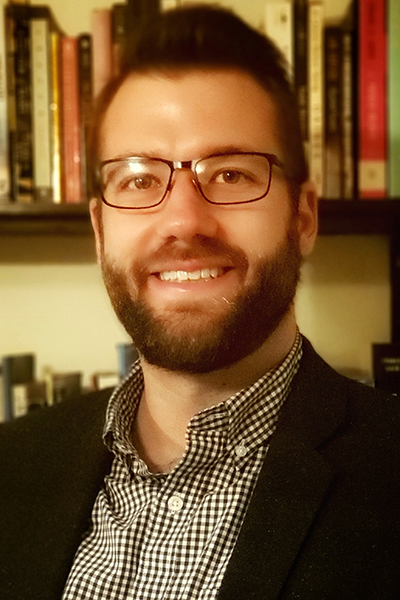
INVESTIGATOR AWARDS
AHSR 2019 Investigator Awardees:
|
Rachel L. Bachrach, PhD
 |
Dr. Bachrach is a clinical psychologist and postdoctoral fellow through the Interprofessional Advanced Fellowship in Addiction Treatment at the Center for Health Equity Research and Promotion, VA Pittsburgh Healthcare System. Dr. Bachrach earned her doctorate from the University at Buffalo and completed clinical internship at the University of Pittsburgh School of Medicine. Dr. Bachrach has been involved in alcohol-related research for over 10 years, examining the predictors and consequences of unhealthy alcohol use in adolescents and young adults. During graduate school, she was awarded an F31 award through NIAAA to investigate the daily relationship between PTSD symptoms, peer norms, and alcohol use in trauma-exposed adults. Her research currently focuses on improving the use of evidence-based addiction care in VA. She recently submitted a VA Career Development Award to pilot test a novel implementation intervention to improve access to and quality of alcohol-related care in VA primary care services. |
|
Jure Baloh, PhD
|
Jure Baloh is an Assistant Professor of Health Policy and Management at the University of Arkansas for Medical Sciences (UAMS) and an affiliated investigator at the UAMS Center for Implementation Research. After obtaining his PhD in Health Services Research and completing a year of postdoctoral training at the University of Iowa, he came to UAMS to work with implementation science and addiction experts on a NIDA T32 postdoctoral fellowship. His current research focuses on assessing barriers and facilitators to implementing a referral service for families and friends of persons with an alcohol use disorder in addiction treatment programs. He is also interested in exploring the context for implementing addiction innovations in non-traditional settings (e.g. pharmacies, churches) as a way to better reach underserved populations. |
|
Anne Fernandez, PhD
|
Anne Fernandez, PhD is a licensed clinical psychologist and Assistant Professor in the Department of Psychiatry at the University of Michigan. Her areas of expertise include substance use and health services research. Her current projects focus on 1) surgical optimization for patients with alcohol use disorders and 2) prevention of opioid misuse among patients prescribed opioids for pain management after surgery. The goal of this work is to improve surgical outcomes through early pre-operative intervention that addresses addiction and other behavioral health risk factors. She currently has a career development grant funded by the National Institute of Alcohol Abuse and Alcoholism, as well as a Precision Health Award through the University of Michigan. Her precision health research leverages machine learning and natural language processing to identify patient cohorts in need of addiction prevention and intervention at key time points in clinical care. |
|
Michael Flores, PhD
|
Michael Flores, Ph.D., M.P.H., is an Instructor in the Department of Psychiatry at Harvard Medical School (HMS) and a Research and Evaluation Scientist in the Health Equity Research Lab at Cambridge Health Alliance (CHA). His research uses rigorous analytic methods to inform policy development and allocation of limited resources, and to improve the health outcomes and care quality of racial/ethnic minorities with mental health and substance use disorders. Dr. Flores completed a postdoctoral fellowship at HMS/CHA, where he was awarded the Norman E. Zinberg Fellowship in Addiction Psychiatry Research from HMS. He received his PhD in Health Services Research from Brown University. |
|
Madeline Frost
|
Madeline received her bachelor’s degree in sociology from Colorado College and her MPH degree in health services from the University of Washington. She is a first-year doctoral student in the Department of Health Services at the University of Washington and a VA Puget Sound Research Training Program predoctoral trainee. For the past two years Madeline has worked as a research project director for Dr. Emily Williams at VA Puget Sound Health Services Research & Development, where she’s contributed to multiple projects focused on disparities in the receipt of substance use-related care and the implementation of this care in primary and specialty care settings. Madeline plans to continue conducting research that helps to increase equitable access to evidence-based services for substance use in both clinical and community contexts. She is particularly interested in reducing disparities and addressing polysubstance use and comorbid conditions to improve delivery of services. |
|
Karli Hochstatter, PhD
|
Karli Hochstatter, PhD, MPH, is a Postdoctoral Research Fellow in the HIV, Substance Abuse, and Criminal Justice T32 Fellowship Program at Columbia University’s School of Social Work and Mailman School of Public Health. She is also a scholar in the Criminal Justice Research Training Program on Substance Use, HIV, and Comorbidities at Brown University. Dr. Hochstatter completed her Master of Public Health and PhD in Population Health Sciences with a minor in Criminal Justice Health at the University of Wisconsin School of Medicine and Public Health. Her dissertation research focused on using computer-tailored and mobile-health interventions to address the intersecting epidemics of opioid injection and hepatitis C virus infection. In addition to this work, Dr. Hochstatter is currently working to understand hepatitis C virus transmission clusters among high-risk populations using Global Hepatitis Outbreak Surveillance Technology. |
|
Eric Romo
|
Eric Romo is currently an MD/PhD Candidate in the Clinical and Population Health Research Program at the University of Massachusetts Medical School. His dissertation research focuses on using mixed methods to evaluate the impact of spatial proximity to sterile syringe sources and secondary syringe exchange on hepatitis C risk among rural people who inject drugs. Eric hopes to eventually practice primary care and addiction medicine, while maintaining a program of research focused on improving substance abuse treatment and harm reduction services for especially vulnerable populations. |
|
Justin Tauscher
|
Justin is completing his doctoral program in counseling and counselor education, master’s program in biomedical informatics, and certificate program in implementation science at the University of Florida. Prior to doctoral study, Justin served as a research associate at the Dartmouth Center for Technology and Behavioral Health working on projects exploring the use of technology to enhance addiction, mental health, and supported employment services. He has an extensive background as a clinical supervisor and dually licensed mental health and addiction counselor conducting treatment with adolescents, adults, and families. Justin has served as an adjunct faculty member teaching graduate courses about addiction issues and co-occurring treatment and provides consultation to state and community agencies in areas of program development, addiction treatment, and school based interventions for addiction. His current research interests involve the application of biomedical informatics to behavioral health, the use of technology to enhance addiction treatment, and implementation science. |
AHSR 2019 Chair Awardee:
|
Daphne Liu
|
Daphne is a junior at West High School in Salt Lake City, Utah. Since a young age, Daphne has been enthralled with Artificial Intelligence and its capabilities to solve problems. This curiosity morphed into the desire to tackle real-world problems. Her research using Machine Learning to classify undetermined drug overdose deaths led her to the Intel International Science and Engineering Fair (ISEF). At ISEF, her project won a first-place prize from the National Institute of Drug Abuse (NIDA), and she was invited to present at the National Institutes of Health (NIH). She was also selected to give an oral presentation at the 2018 American Medical Informatics Association (AMIA) Annual Symposium as a featured High School Scholar. Recently, her first authored paper titled “Discovering the Unclassified Suicide Cases among Undetermined Drug Overdose Deaths Using Machine Learning Techniques” has been accepted for publication in the Journal of Suicide and Life Threatening Behavior. |







